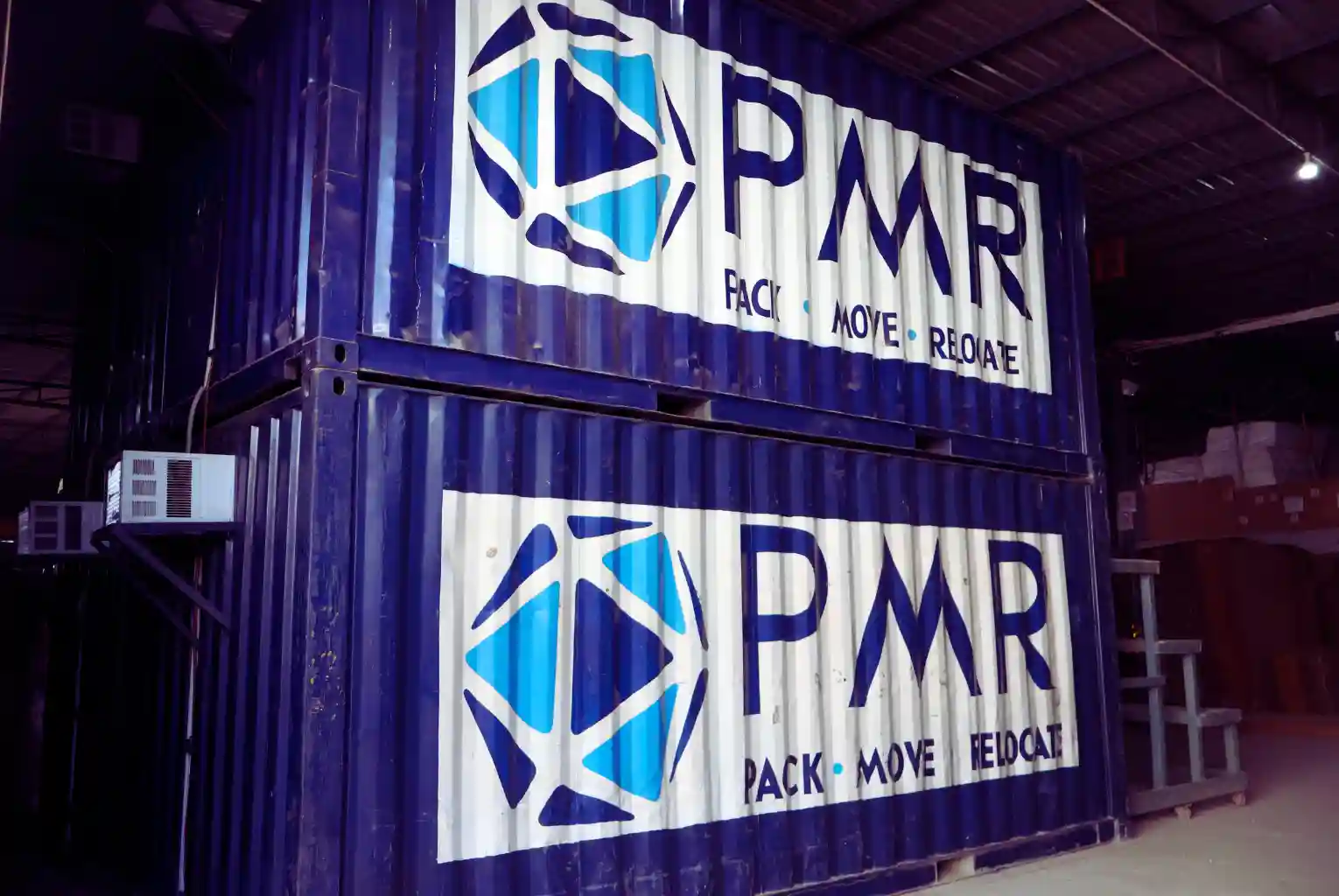STRATEGIES TO CONQUER THE KEY CHALLENGES OF INTERNATIONAL RELOCATION IN 2024

What are the Challenges of Relocating?
These challenges can leave employees stressed and less productive. However, these hurdles can be overcome with a proactive focus on the strategies below.
Cultural Intelligence Empowerment
- Offering cultural training programs to relocating employees to foster understanding of the destination country's cultural norms, etiquette rules, communication styles, values, and beliefs. Training helps employees avoid culture clashes.
- Building a culture of openness within the company so employees feel comfortable asking what may be sensitive cultural questions. This facilitates smoother cultural adjustment.
- Role-playing various culturally difficult scenarios. This gives employees practice navigating potentially uncomfortable intercultural interactions.
Customized Pre-Departure Support
- Needs assessments to understand required support like language classes, financial planning, school search, etc. Assessments allow companies to tailor robust pre-departure programs.
- Information packages provide comprehensive guidance on the destination country, from average apartment rental prices to typical etiquette and cultural norms. They prepare you for daily life abroad.
- Q&A sessions with previous relocatees, local HR, and global immigration consultants. Discussing destination-specific challenges with experts pre-emptively answers employee questions and concerns.
Technology Integration for Seamless Communication
- Cloud-based collaboration platforms facilitate remote meetings across borders and time zones so employees maintain strong working relationships during moves.
- Instant messaging software provides quick access to HR, global mobility teams, and fellow globally dispersed employees for real-time support in handling cross-cultural challenges.
- Knowledge management databases where mobile employees globally share destination-specific learnings, rental contacts, etc. These help new relocatees hit the ground running abroad.
Global Policy Alignment
- Quarterly global mobility policy reviews to ensure consistency across regions and alignment with quickly evolving regulatory landscapes around visas and taxation.
- Flexibility accommodations in policy frameworks to support employees with families, transitioning spouses, language barriers, and other specialized needs. Customized assistance smooths culture shock.
- Ongoing internal audits and feedback mechanisms to address developing relocation support gaps, reduce redundant processes, and streamline moves so employees stay focused on core work, not logistics.
Mental Health and Wellbeing Focus
- Building a bank of vetted, English-speaking mental health professionals to support relocated employees around the globe. Reliable access to therapy aids cultural adjustment.
- Manager training programs focused on identifying signs of culture shock and burnout. Well-informed leaders can act early, getting struggling employees proper assistance.
- Self-care allowances so employees can enroll in local fitness classes, join expatriate networking groups, and partake in stress-relieving activities that ease transitions.
- Prioritizing psychological wellness and work-life harmony helps curb the risk of relocation setbacks due to poor cross-cultural coping mechanisms.
Flexibility in Work Arrangements
- Normalizing remote and hybrid work for relocated staff needing work schedule adjustments while getting oriented overseas is especially useful for employees with trailing spouses or family obligations.
- Allowing relocated employees to shift their hours earlier or later to accommodate global team meetings during time zone overlaps. Flex time keeps productivity unaffected by moves.
- Granting additional unpaid leave when required for relocation-related necessities like embassy visits or family house-hunting trips abroad. This facilitates smoother transitions.
Localized Networking Opportunities
- Sponsoring expatriate club memberships to help transplants foster community with fellow expats also facing integration hurdles. Shared experience builds bonds.
- Coordinating meetups for employees new to a location to mingle with local colleagues and start establishing an in-country support system. Familiar faces increase comfort abroad.
- Gatherings for globally mobile employee spouses and families to connect over shared adaptation struggles. Kids can also bond over switching schools mid-year.
Financial Planning Assistance
- Access to international accounting and tax specialists helps relocated employees establish locally compliant payroll, navigate tax preparation abroad, and avoid penalties down the line.
- Relocation bonus packages give employees added resources to absorb unexpected move expenses without financial stress, like currency fluctuations throwing budgets off.
- Cost projection resources equip employees to realistically budget for the destination-specific standard of living factors from healthcare to accessing international schools for kids. Accuracy prevents shortfalls.
Family Support Programs
- Cultural training for family members to align expectations and impart crucial country-specific skills from traffic laws to securing groceries or healthcare abroad. This facilitates autonomy.
- School search assistance connects families with credentialed international academic options, waitlist insights, and enrolled expatriate contacts who can advise on navigating new school settings.
- Virtual relocation community forums focused on kids and spouses where members share first-hand integration tips from accessing visa-compliant medical resources to getting foreign driver's permits. Shared knowledge brings confidence.
Real-time feedback alignment
Legal and Compliance Expertise
- In-house global mobility lawyers that secure fast-track visa processing, alignments across trade agreement acts, and other specialized support attuned to frequent business traveler needs. Internal teams work faster than external immigration law firms.
- Compliance specialists continuously evaluate the global regulatory environment around taxation, data management, trade controls, and other exponentially complex domains ripe for frequent upheavals. They proactively realign policies protecting overseas employees.
- Regional HRBPs with established government relationships are able to make diplomatic inquiries regarding application delays or related issues. Their connections smooth bureaucratic wrinkles hampering overseas immigrants.
Post-Relocation Integration Strategies
- Intercultural mentorship initiatives that pair masterfully localized expat veterans with newly onboarded immigrants abroad to impart integral daily life wisdom from securing household help efficiently to building indispensable local professional networks.
- Ongoing immersive language programs abroad prevent relocated employees from plateauing at beginner fluency levels, but mastering advanced professional and lifestyle vocabulary ensures deeper assimilation success.
- Global mobility career mapping and repatriation support to identify optimal roles for leveraging internationally gained skills upon returning home and reintegrating into domestic offices armed with fresh global mindsets.
Our Blogs

WHY SUCCESSFUL RELOCATION DEPENDS MORE ON RELOCATION PLANNING THAN DISTANCE
Successful relocation is rarely defined by distance—it’s driven by effective planning. From choosing the right storage solutions to coordinating warehouse timelines, smart relocation planning helps protect your belongings, reduce delays, and ensure a seamless transition. Whether it’s short-term storage or long-term warehousing, organized logistics play a critical role in making any move successful.

WHY YOUR BELONGINGS DESERVE A PAUSE: RETHINKING STORAGE AND WAREHOUSING SERVICES DURING RELOCATION
Relocation is not always a seamless door-to-door journey. Delayed handovers, international transit schedules, temporary housing, or sudden changes in plans often create a gap between moving out and moving in. During this uncertain phase, professional storage and warehousing services provide a safe, controlled environment for your belongings. From short-term holding to long-term storage, these solutions ensure your household goods remain protected, organized, and ready for the next step of your relocation—without adding stress to an already complex move.

WHY INTERNATIONAL RELOCATION TIMELINES OFTEN SLIP — AND WHAT YOU CAN DO TO STAY ON TRACK
International relocation timelines often look straightforward on paper—but reality tells a different story. Visa approvals, customs regulations, documentation gaps, port congestion, and coordination between multiple service providers can easily cause unexpected delays. Even small oversights early in the planning stage can snowball into weeks of disruption. This blog breaks down the real reasons why international relocation timelines slip and, more importantly, outlines practical steps you can take to anticipate risks, plan smarter, and keep your global move moving forward without unnecessary stress.



